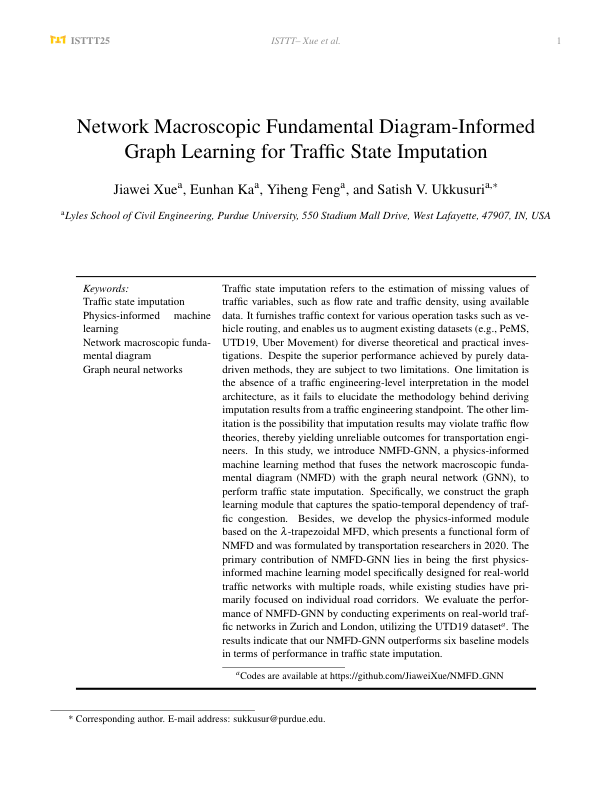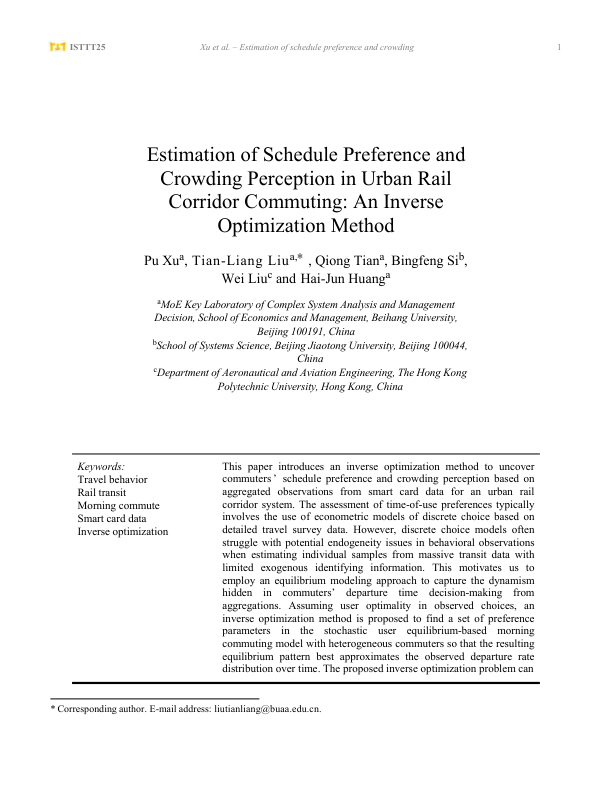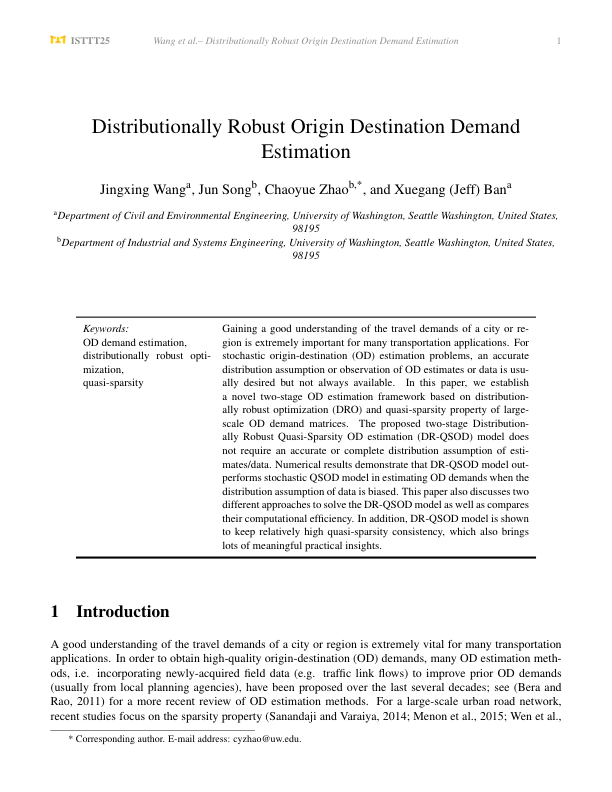Lightning Talk 1: A Two-Sided Equilibrium Model of Vehicle-To-Vehicle Charging Platform
Title: A Two-Sided Equilibrium Model of Vehicle-To-Vehicle Charging Platform
Authors: Xuekai Cen, Kanghui Ren, Enoch Lee, Hong K. Lo
Abstract: A novel mobile charging service utilizing vehicle-to-vehicle (V2V) charging technology has been proposed as a complement to fixed charging infrastructure (CI), enabling electric vehicles (EVs) to exchange electricity. This study develops a two-sided equilibrium model for a V2V charging platform, where the demand-side Charging Vehicles (CVs) choose ...
Keywords: Electric Vehicle; Vehicle-to-Vehicle; Charging; Non-cooperative Game; Nash Bargaining



